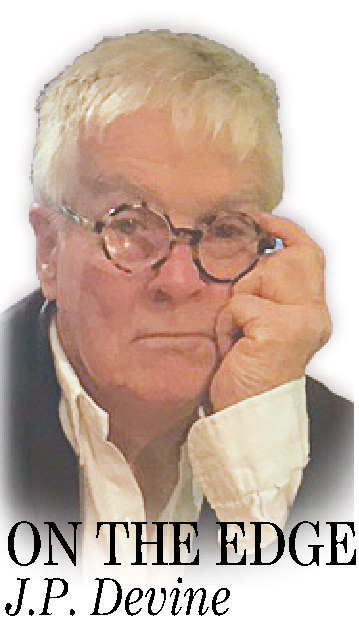“Fiction is the lie through which we tell the truth.”
― Albert Camus
He did not think it would come to this, maybe a week or two, a limp, a cane maybe. He could make much of those things.
He remembered when he got off the plane from Asia, fully decked out in his uniform, with four little obscure ribbons on his chest.
“What are those for?” the girl in the bar asked.
He adjusted his Rayban pilot glasses, and cleared his throat and looked not at her, but into his glass of scotch.
“I don’t like to talk about it,” he said.
“I understand,” she whispered. “It must have been Hell there.” Then she squeezed his hand.
Those were the good days the old man remembered, when a gift for fiction could bring you warmth and what, for a night, passed for love.
Here in the winter of his life, the limp is real, the arthritis in the knee real. But the old man’s hair was white now, and the tinted Raybans hid deep wrinkles beneath the eyes.
A cane, he groused, a basket to lean on maybe, but he did not expect it to come to this, to the dreaded GOLDEN ELECTRIC CART. That was for the truly aged, those with serious impairments.
Now, he would be forced to glide through the aisles where friends, admiring men and aging, but still sensuous women, still lurked, waiting to praise him for his work.
As he stood in the gray winter light of the market lobby, staring at the Golden Electric Cart, he wondered if Papa and his fishing buddy, Bill Smith, or Cayetano Ordonez — with whom he had run the bulls at Pamplona in the 20s, where they both fell beneath the hooves — would ride in one of these Golden Carts, down the Puerta Del Sol in Madrid after having been gored in the ring.
He shuddered at the thought.
But he remembered the pain that he would certainly suffer that night after having walked these market floors, a pain that not even two full glasses of Marqués de Murrieta Castillo Ygay Gran Reserva Especial would wash away.
So, reluctantly, he got in and rode through the market, avoiding the wine section, where many of his admirers gathered in the evening, hoping to find him. Luckily, he had stocked up on his beloved Especial.
He came early in the afternoon, hoping his many readers and admirers would still be at work. But it was not to be so. He forgot that it was Saturday, and the aisles were full.
There was Alica the Realtor in aisle six, groping through boxes. He pulled his hoodie over his head and turned away, but she spotted him.
“Papa,” she gasped. He loved when she called him Papa, and he encouraged that.
“What happened?”
“I was running in the ice and snow,” he whispered, fully employing the gift for fiction, “and I swerved to avoid a passing child on a sled and fell.”
Alica touched his shoulder, “You’re so brave for an old man,” she said. He let that pass.
Then the old man glided swiftly away, glancing from aisle to aisle to make sure he was not seen. But each aisle held a familiar face, some saw him first and quickly shuffled away to avoid embarrassing him. That, the old man thought, was more painful than being confronted.
There was his doctor, his very own primary caregiver, who, clutching his package of filet mignon, suddenly stepped in front of him. The doctor saw that the old man was embarrassed, and quickly whispered in his ear, “I am not judging you,” and quickly moved away.
There was, it seemed, someone in every aisle but the bread section, so the old man stocked up on several boxes of stale croissants, and made for the door where he met his best friend, the judge, who took a step back.
“I never thought it would come to this,” he gasped. “Not you, not the old man who ran with the bulls at Pamplona, and fished the Guadiana in Spain.” And then he quickly moved away. That hurt more than the broken knee.
That night, the old man drank several glasses of his beloved Marqués de Murrieta Castillo Ygay Gran Reserva Especial, and swore never to ride the Golden Electric Cart again, remembering the words of a great toreador who had ripped his paints in the ring, “Pain is temporary, but humiliation is forever.”
J.P. Devine is a Waterville writer.
Copy the Story LinkSend questions/comments to the editors.




Success. Please wait for the page to reload. If the page does not reload within 5 seconds, please refresh the page.
Enter your email and password to access comments.
Hi, to comment on stories you must . This profile is in addition to your subscription and website login.
Already have a commenting profile? .
Invalid username/password.
Please check your email to confirm and complete your registration.
Only subscribers are eligible to post comments. Please subscribe or login first for digital access. Here’s why.
Use the form below to reset your password. When you've submitted your account email, we will send an email with a reset code.